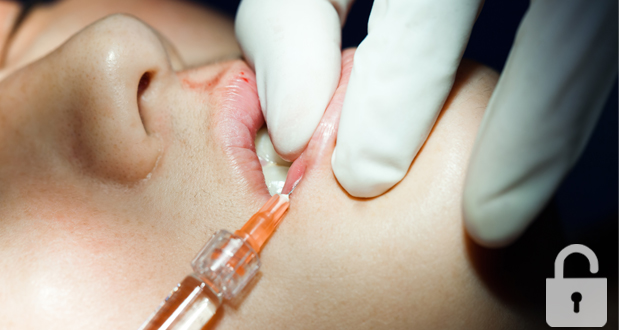Complaints about cosmetic health services are being aired out in the media and through a parliamentary inquiry – and governing bodies need to know that nurses can help restore public trust.
That’s the message the Australian College of Nursing (ACN) has taken to the inquiry into cosmetic health service complaints in New South Wales.
The inquiry followed media reports of several serious incidents in recent years involving cosmetic procedures, including the death of a woman following a cosmetic procedure at a clinic in Sydney.
ACN said fostering strong linkages between the nursing profession and the Health Care Complaints Commission (HCCC) could help improve patient outcomes following cosmetic procedures.
In its submission, ACN said members have raised concerns about the employment of unregistered and untrained staff in cosmetic healthcare services or in those providing cosmetic treatments.
“The implications this may have for infection control, clinical information provision and the appropriateness of care pathways require thorough examination,” it read.
“Feedback also suggests that there may be circumstances where inexperienced ENs and RNs are employed in facilities without basic service orientations and other appropriate clinical governance structures in place including policies and procedures to support their safe and legal practice.”
In its submission to the inquiry the Nursing and Midwifery Council of NSW detailed a case study involving an enrolled nurse who established her own beauty business with rooms in a medical centre.
“Within her business, she worked as a sole practitioner with a prescribing medical practitioner via Skype,” the submission read. “As an EN, she was required to work under the supervision of a registered nurse, but up until she was first reported to the Council, she practised unsupervised.”
As a result of subsequent complaints, the EN was ordered to attend a performance assessment and an inspection of her workplace.
The council’s submission read:
In 2017, an inspection of the EN’s workplace was carried out. There were issues identified in relation to privacy, consent process, lack of supervision, infection control, and lack of standard procedures for: medication administration, privacy and complaints management.
The EN also attended a performance assessment, where serious concerns were raised in relation to her practice as an enrolled nurse.
The assessors’ preliminary findings raised serious concerns about her competency and ability to practise. It was recognised that the EN’s current practice relates to cosmetic procedures and this role requires the application of skills and knowledge of an enrolled nurse. She was required to undertake continuing professional development to maintain her knowledge base as an EN, regardless of the setting in which she practises.
The assessors provided examples where they considered the EN did not meet the standards required…
It was noted that the EN worked with no restrictions in an unstructured and unsupervised environment. The assessment identified significant deficits in the EN’s current practice. The assessors consider she has demonstrated limited insight into these deficits and is a risk to the public and unsafe to practice at this time."
Adjunct Professor Kylie Ward, chief executive of ACN, said by working with the nursing profession, the HCCC can develop strategies to better regulate professionals and service providers, and ensure regulation keeps pace with sector developments.
“Nurses work in all settings, including cosmetic clinics," Ward said. "Those who work in this setting must be aware of their professional and legislative responsibilities and service requirements.”
ACN, along with the Australasian College of Cosmetic Surgery, has developed an information sheet to clarify nursing’s role in cosmetic procedures.
It was designed to provide background on the scope of nursing in the industry to better protect and improve patient safety.
Do you have an idea for a story?Email [email protected]
 Nursing Review The latest in heathcare news for nurses
Nursing Review The latest in heathcare news for nurses

